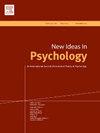Examining the root of intergroup sensitivity: What is the norm underlying defensive reactions to criticism?
IF 2.9
3区 心理学
Q2 PSYCHOLOGY, EXPERIMENTAL
引用次数: 0
Abstract
Criticism is important for change and growth and is a common component of group-level interactions. One variable that influences how people react to criticism is the group membership of the person delivering it. Both targets and bystanders of critical comments respond with more sensitivity and defensiveness to intergroup criticism (i.e., criticism between groups) relative to intragroup criticism (i.e., criticism within a group), termed the Intergroup Sensitivity Effect (ISE). In this paper, we seek to explain why the ISE occurs, refining previous arguments that intergroup criticizers violate a norm. Research on prejudice, intergroup trust, intergroup cooperation, and the pragmatics of politeness and cooperation are referenced to inform a novel Norm Perspective explanation of the ISE. This perspective suggests that there is a general prescriptive cooperation norm that is violated when outgroup members criticize other groups. Namely, the combination of intergroup criticism that does not follow cooperation and politeness pragmatic principles as well as suspicion toward outgroup member motives leads to a perception of uncooperative behavior. We then review previously used strategies for decreasing the ISE in the context of this proposed cooperative norm. Future directions for testing this theory and implications for ISE reduction strategies are discussed.
审视群体间敏感性的根源:对批评的防御性反应背后的规范是什么?
批评对改变和成长很重要,是群体互动的一个常见组成部分。影响人们对批评的反应的一个变量是发表批评的人的群体成员。批评评论的目标和旁观者对群体间批评(即群体之间的批评)的反应比群体内批评(即群体内的批评)更敏感和防御,称为群体间敏感效应(ISE)。在本文中,我们试图解释ISE发生的原因,完善先前关于群体间批评者违反规范的论点。通过对偏见、群体间信任、群体间合作以及礼貌与合作的语用学的研究,为ISE提供了一种新的规范视角解释。这一观点表明,当外群体成员批评其他群体时,存在一种普遍的规定性合作规范。也就是说,不遵循合作和礼貌实用原则的群体间批评以及对外群体成员动机的怀疑相结合,导致了对非合作行为的感知。然后,我们回顾了以前使用的策略,用于在此提议的合作规范的背景下降低ISE。讨论了测试这一理论的未来方向和减少ISE策略的含义。
本文章由计算机程序翻译,如有差异,请以英文原文为准。
求助全文
约1分钟内获得全文
求助全文
来源期刊

New Ideas in Psychology
Multiple-
CiteScore
4.80
自引率
3.80%
发文量
37
期刊介绍:
New Ideas in Psychology is a journal for theoretical psychology in its broadest sense. We are looking for new and seminal ideas, from within Psychology and from other fields that have something to bring to Psychology. We welcome presentations and criticisms of theory, of background metaphysics, and of fundamental issues of method, both empirical and conceptual. We put special emphasis on the need for informed discussion of psychological theories to be interdisciplinary. Empirical papers are accepted at New Ideas in Psychology, but only as long as they focus on conceptual issues and are theoretically creative. We are also open to comments or debate, interviews, and book reviews.
 求助内容:
求助内容: 应助结果提醒方式:
应助结果提醒方式:


